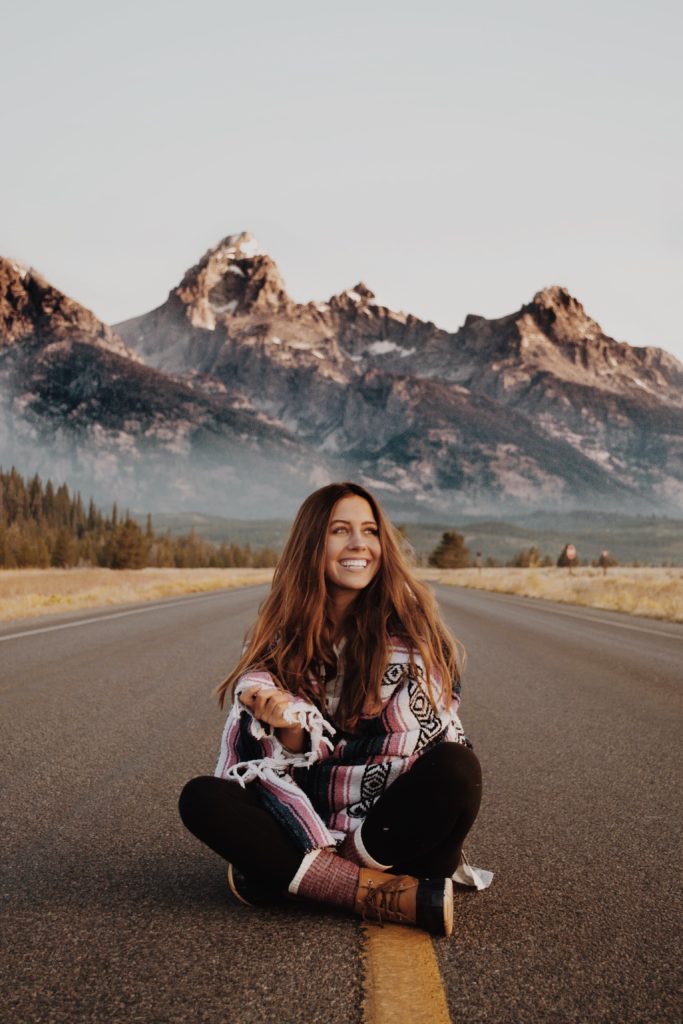Ashton Hendricks spends less money on material objects so she can spend more on traveling and creating memories.
On June 1 of this year, 21-year-old Ball State student Ashton Hendricks packed four small suitcases, hopped on a plane, and began the journey from Indiana to her new home in Denver, Colorado. Leaving behind her family, school, and many of her friends, Ashton went to Denver in pursuit of adventure, driven by her love for the state and for her fiance, Ball State alumnus Brock Frazer, who also lives there.
Ashton has always valued experiences in her life. In addition to moving halfway across the country, she has traveled all around the globe, from Haiti to France to Costa Rica. Ashton is happiest when she’s standing at the top of a 14,000-foot mountain or planning a road trip with her friends.
“Traveling and seeing new places fills me up,” says Ashton. “It makes me feel alive and free.”
Given the choice between spending money on a new handbag and a plane ticket, Ashton says she would “hands down” opt for the ticket.
Thomas Gilovich, a professor of psychology at Cornell University, says choosing to spend money on experiences instead of material objects can be more satisfying. According to the Boston Consulting Group, Millennials are spending significantly more than previous generations on the experience industry. In his 2003 study, Gilovich wrote that experiences are more valuable because they create positive feelings, build character, and have more social value.
Gilovich says experiences are more open to positive reinterpretation. It’s easier to find a silver lining when it comes to special moments, as opposed to tangible possessions. Material items stay the same, but memories can become better over time.
“For example, if you buy a car that always breaks down, that is not, and never will become charming,” Gilovich says.
Experiences are also more central to people’s identities because they have the power to shape personality. Ashton has become somewhat of a minimalist, not buying new things if she can find something else that works just as well. For example, when she first moved to Denver, she found a used coffee table on the curb outside her apartment complex. She took it, cleaned it up, and says it is “the perfect addition” to her space.
 Experiences also have a greater social value. When we experience something, whether it’s really great or really terrible, we often want to share it with our friends and family members. We have stories to tell that help strengthen relationships.
Experiences also have a greater social value. When we experience something, whether it’s really great or really terrible, we often want to share it with our friends and family members. We have stories to tell that help strengthen relationships.
Ashton says her most treasured memories were shared with friends and family. Some of these times were spent exploring Moab, Utah, with her fiance. Ashton says the canyons and towering rock formations were breathtaking, and she wouldn’t trade her time there for anything.
Memories like these create a sense of fulfillment for Ashton that a new handbag or pair of shoes could never produce.
From June 2017 to June 2018, Ashton spent a year without shopping or buying unnecessary clothing items. This experience gave her more appreciation for the people around her while helping her save money for future travels. While parts of the experience were difficult, like when Ashton’s friends found good deals on things she wanted to buy, she says the year was a huge step in the right direction for her. She now feels less materialistic and object-oriented.
With the money Ashton saved from her year without shopping, she was able to travel to places like Spain, Canada, and California. While in school, people would often ask Ashton how she could afford to travel as a college student. She says her approach to saving was fairly simple: She only spent money on rent, food, and traveling.
This month, Ashton will be visiting Europe and checking five more countries off the list of places she hopes to visit in her lifetime.




